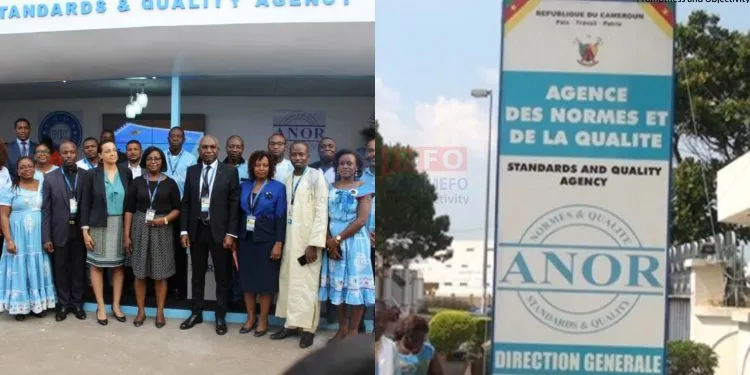In December 2022, during an entrepreneurship competition in Limbe, a finalist faced disqualification due to one simple question from the jury: Did he know about the Standards and Quality Agency (ANOR)? His response—“no”—raised concerns about the safety of his product, prompting questions about consumer protection in Cameroon.
Just one question from the jury members got him disqualified from the winning position. He was asked whether he knew the Standards and Quality Agency (ANOR). His answer was a “no.”. The jury was surprised that the man was feeding people products that had not gotten the approval of ANOR and wondered if they became poisonous. What would the young man do?
However, the young producer who lost the competition for not knowing ANOR was just one of millions of Cameroonians producing products and circulating them in the market without obtaining the approval of ANOR.
In almost all Cameroonian cities and villages, it is very common for one to get up and start a roadside food business or open a brewery company or body lotion company without obtaining certification. In Buea, for instance, the phenomenon of young girls mixing all kinds of things in the name of skin care products is rampant.
Aside from that, some people without any knowledge of biology, chemistry, or food nutrition are making online deliveries for their weight loss products. MMI asked about three persons involved in the maturing of skin care products and food deliveries if they had any authorization or certification for their product, and they were in shock that a standard agency for quality even existed in the country.
This incident sheds light on a widespread issue: many Cameroonians engage in business ventures without ANOR approval. From roadside food vendors to online weight loss product sellers, certification often isn’t a priority. In Buea, for example, unregulated skincare products flood the market, and individuals lacking expertise in relevant fields distribute products without authorization.
On March 15, Cameroon observed International Consumer Rights Day, underscoring the need for fair and responsible practices. Despite this, ANOR certification remains primarily a concern for large-scale producers, with many consumers showing little regard for product legitimacy.
MMI recently published a report which highlights the dangers of unregulated products. Reports surfaced of a herbal drink, JIGSIMUR, causing fatalities in Bamenda. Similarly, unauthorized drugs and products contribute to numerous deaths nationwide. Even pirated alcohol floods the market, raising questions about ANOR’s oversight and enforcement.
Despite ANOR’s sporadic interventions, such as the 2022 ban on papa nono sardines, issues persist. Some certified companies, like Congelcam, face criticism for selling substandard products due to monopolies. Moreover, scandals like the unsanitary production of SANO water highlight systemic failures in quality control.
ANOR’s Cameroonian Standard NC 05:2018 aims to regulate natural mineral water, emphasizing safety and purity. However, enforcement remains challenging, especially outside the capital, where tax collectors overlook certification requirements.
Amidst these challenges, calls for ANOR to increase awareness and enforcement grow louder. Meanwhile, questions arise about the effectiveness of consumer protection organizations in Cameroon. As uncertified products continue to pose risks, the need for comprehensive regulatory measures becomes increasingly urgent.



